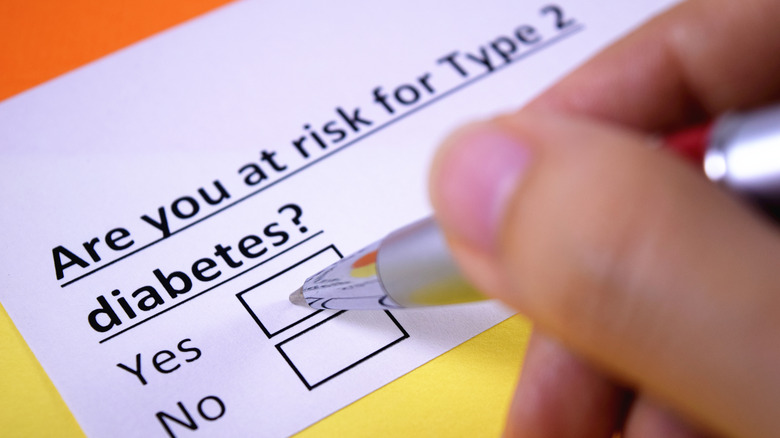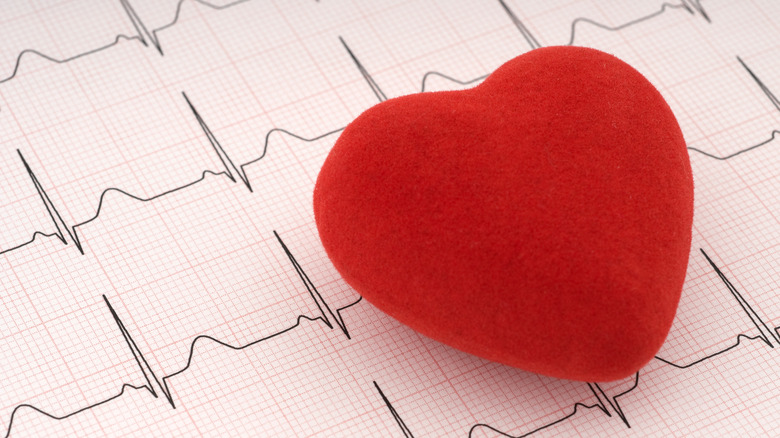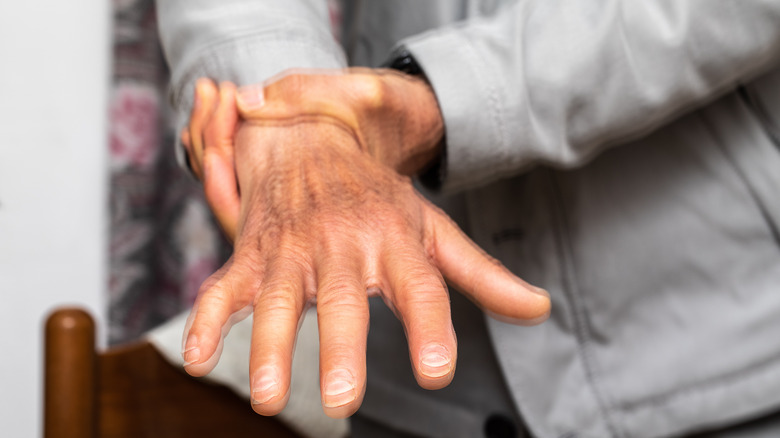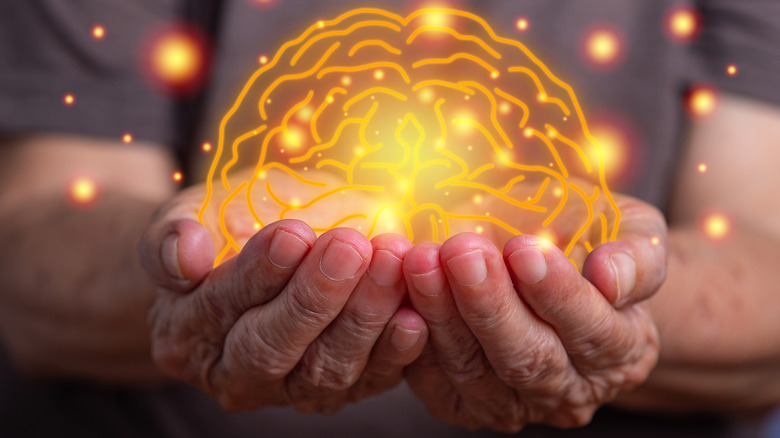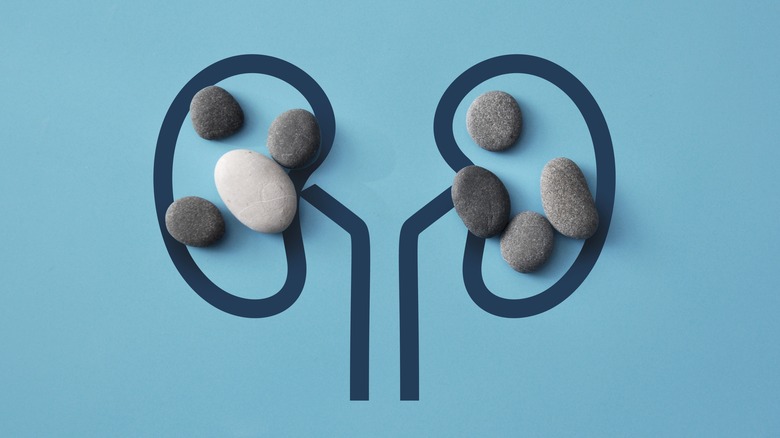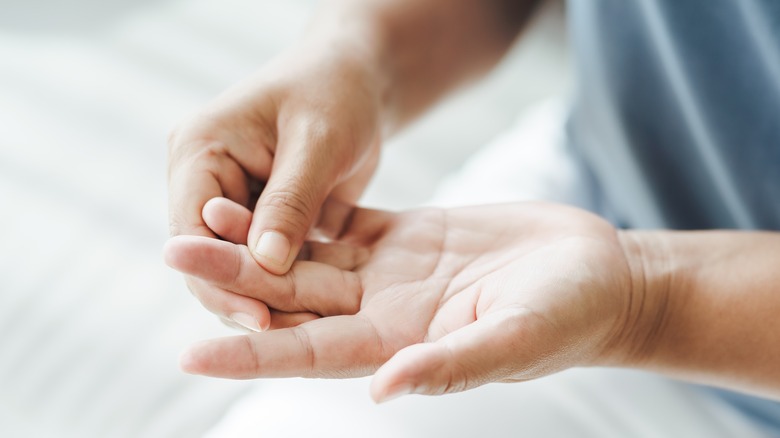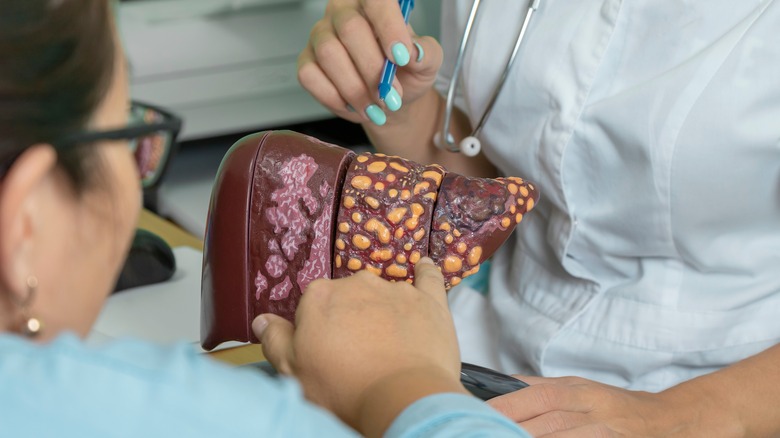7 Health Conditions Coffee Can Help Prevent
Coffee is a major part of everyday life in the United States. For many, a day doesn't officially start before that first cup of joe. A typical first date involves chatting over coffee at a place like Starbucks. But coffee as we think of it today didn't happen overnight.
According to the U.S. Department of Agriculture's Economic Research Service,companies in the early to mid-1900s sought to increase their coffee's popularity and profitability in the U.S. in two ways: through technology and through marketing. For example, companies began using methods like vacuum packaging for coffee. American soldiers in World War II drank instant coffee. Even Maxwell House Coffee's iconic slogan "Good to the Last Drop" was coined during this time period's coffee marketing campaigns. However, the increased availability of soft drinks affected coffee's popularity, and coffeehouses impacted supermarket coffee sales.
Still, whether you enjoy brewing your own coffee at home or prefer buying your favorite coffee from a local barista, research suggests that coffee consumption may help prevent certain illnesses. Keep in mind, though, that just because some research supports coffee as a possible preventative measure, doesn't automatically mean you should start drinking it or adding more of it to your diet. After all, there's always new research being done, which can sometimes correct or contradict previous findings. With that said, here are some of the health conditions that drinking coffee may help prevent.
Type 2 diabetes
As explained by the Centers for Disease Control and Prevention, even though blood sugar is an energy source for our cells, they still need insulin to take in that blood sugar. However, cells may become resistant to insulin, so the pancreas produces more insulin to try to compensate. Over time, the pancreas can become overtaxed and blood sugar levels can become elevated, which can lead to prediabetes and, eventually, type 2 diabetes.
If you're concerned about type 2 diabetes being in your future, a report from the Institute for Scientific Information on Coffee concluded that both caffeinated and decaffeinated coffee might lower the chances of developing type 2 diabetes (via the University of Alabama at Birmingham Medical West). The report compared drinking two cups of coffee or fewer a day with drinking three or four cups a day. The results: The odds of developing diabetes went down as the number of cups consumed per day went up.
Despite the report's findings, though, there is something to keep in mind if you already have diabetes. The Mayo Clinic notes that caffeine can affect blood sugar levels in different ways, either raising or lowering them. Since the way caffeine affects someone can vary from person to person, cutting back on it rather than increasing it might be better for some diabetics.
Heart failure
Heart failure is one of those medical terms that can be easily misunderstood. As the American Heart Association explains, heart failure doesn't mean the heart has stopped. But although it's still beating, it's unable to circulate the right amount of blood and oxygen throughout the body. And while there is some evidence that drinking coffee might help prevent this health condition, there are a few things that one should keep in mind.
A study published in Circulation: Heart Failure found that drinking coffee might reduce the chances of heart failure. This study involved analyzing data from three different studies whose combined participants totaled more than 21,000 coffee-drinking adults. The three studies found adults who drank caffeinated coffee were less likely to have heart failure. However, there are some gaps in the studies' information. For example, all three studies concluded that the potential heart failure-preventing ingredient in coffee is caffeine, but none of them explored if other sources of caffeine (like tea) might also help prevent heart failure. Also, the studies didn't specify details like the coffee's strength or preparation method.
Although the data may sound promising, remember that drinking coffee beverages that have large amounts of sugar, fat, and calories isn't heart-healthy (or healthy in general), per the American Heart Association. Plus, the site cautions that "caffeine can be dangerous when consumed in large amounts."
Parkinson's disease
According to the Cleveland Clinic, a person with Parkinson's disease (PD) experiences progressive deterioration of part of their brain, with its symptoms increasing in severity over time. And while there is currently no cure for the condition, research supports the idea that coffee might reduce the chances of developing it.
Per the Parkinson's Foundation, while some believe caffeine could be the PD-preventing ingredient in coffee, others note that Eicosanoyl-5-hydroxytryptamide (EHT), a fatty acid found in coffee, could also be a major factor. Interestingly, a six-month study involving rodent PD models supports the idea that a combination of EHT and caffeine might be the real key. This research involved treating the mice with caffeine, with EHT, and with both EHT and caffeine; additionally, some mice were given no treatments. The mice treated with both EHT and caffeine fared the best among all the mice involved in the study.
Additionally, a study involving 61 PD patients found that caffeine seemed to help with movement issues but not daytime sleepiness (via the American Academy of Neurology). As Dr. Michael Schwarzschild from the Massachusetts General Hospital clarified, "Although the results do not suggest that caffeine should be used as a treatment in Parkinson's disease, they can be taken into consideration when people with Parkinson's are discussing their caffeine use with their neurologist."
Alzheimer's disease
According to the Mayo Clinic, Alzheimer's is a type of brain disorder where the brain shrinks; over time, its cells die. Alzheimer's can lead to dementia, which can negatively affect one's thinking and memory, as well as one's behavior and social skills.
The idea of Alzheimer's and dementia can be frightening, but researchers from Edith Cowan University concluded that drinking coffee might reduce the chances of developing Alzheimer's (via Science Daily). The research involved more than 200 Australians and spanned more than a decade, during which the researchers tracked cognitive functions like planning and self-control. Lead investigator Dr. Samantha Gardener said, "We found participants with no memory impairments and with higher coffee consumption at the start of the study had lower risk of transitioning to mild cognitive impairment — which often precedes Alzheimer's disease — or developing Alzheimer's disease over the course of the study."
Although the study's findings were promising, Harvard Health Publishing notes that drinking large amounts of coffee could be damaging to one's brain. Research regarding roughly 400,000 coffee drinkers concluded that those who drank more than six cups of either caffeinated or decaffeinated coffee on a daily basis were more likely "to have smaller amounts of total brain volume" and greater odds of having dementia than those who only drank one to two cups a day.
Kidney stones
Chances are that even if you've never had kidney stones, you've heard that they can be quite unpleasant. And that's not surprising considering that the stones in question are made of a combination of salts and minerals that form inside the kidneys (per Mayo Clinic). Additionally, there are different types of stones, but the most common are calcium stones, specifically the calcium oxalate variety.
So, can coffee really help prevent this health issue? Well, according to the National Kidney Foundation, a study that analyzed data from two different studies involving a combined total of 571,657 individuals with kidney stones found a possible connection between coffee and a lower chance of developing kidney stones. "Our findings show that going from, for example, one cup a day to 1.5 cups per day, reduces the risk of kidney stones by 40 percent," said study co-author Dr. Susanna C. Larsson, adding that based on their data, drinking coffee regularly may lead to a reduced risk of kidney stone formation.
While the study supports coffee as a possible way to prevent kidney stones, it's worth noting that coffee does contain oxalates (via University of Wisconsin Health). With that said, eliminating all foods that contain oxalates isn't a one-size-fits-all "fix" for kidney stones and could have a negative impact on one's health. Instead, speak with a medical professional about the right combination of foods for your kidney-friendly diet (and coffee can definitely be part of that conversation).
Gout
If you were to ask a group of gout patients to describe their condition, chances are most of them would say "painful." As the Mayo Clinic explains, gout occurs because of a chain reaction involving purine, a chemical found in our bodies and in some foods. When our bodies break down this chemical, it produces uric acid. However, large amounts of uric acid can lead to gout, where crystals form around and inside joints, causing pain and even damage.
If you're concerned about developing gout, there is research suggesting that consuming coffee might lower the chances of having this form of arthritis. Dr. Hyon Choi of the University of British Columbia in Vancouver, Canada, and colleagues at Harvard Medical School in Boston conducted data analysis that supports the notion of coffee potentially reducing the odds of developing gout (via Reuters). Their work focused on a United States survey that spanned six years and involved roughly 50,000 men. "We found that when they are drinking four to five cups of coffee, there was a 40-percent reduction. Drinking six or more cups resulted in a 50- to 60-percent reduction (in the risk for gout)," Dr. Choi told Reuters.
The data analysis found that drinking coffee might lower uric acid levels. MedicineNet also noted that someone with gout might also benefit from drinking coffee. However, it's still not advisable to drink excessive amounts of coffee, and of course, add-ins like sugar make it less healthy.
Cirrhosis
As the National Institute of Diabetes and Digestive and Kidney Diseases (NIDDK) explains, if a liver has cirrhosis, it's scarred and damaged. Although excessive alcohol consumption can cause cirrhosis (via Johns Hopkins Medicine), medical issues like type 2 diabetes, obesity, and metabolic syndrome can all increase the odds of developing nonalcoholic fatty liver disease (NAFLD), per NIDDK, which can cause cirrhosis. Additionally, chronic hepatitis B and C can both lead to cirrhosis.
Cirrhosis can be a dangerous medical problem, but a data analysis study of nine different studies points to coffee consumption possibly reducing the likelihood of developing cirrhosis (as reported by Reuters). The combined total number of participants for these studies was more than 430,000, and in eight of the nine studies, the odds of developing cirrhosis notably decreased as coffee consumption increased. However, it's worth noting that although the studies considered alcohol as a factor when it comes to cirrhosis, they didn't all consider factors like diabetes and obesity, which can lead to NAFLD.
So, do these findings mean that a person can overindulge in alcohol as long as they drink lots of coffee? As Samantha Heller, a senior clinical nutritionist at New York University Langone Medical Center in New York, told Reuters, drinking coffee isn't going to erase unhealthy actions like excessive alcohol consumption. Additionally, lead study author Dr. Oliver Kennedy cautions against caramel lattes and other coffee beverages containing unhealthy ingredients.


